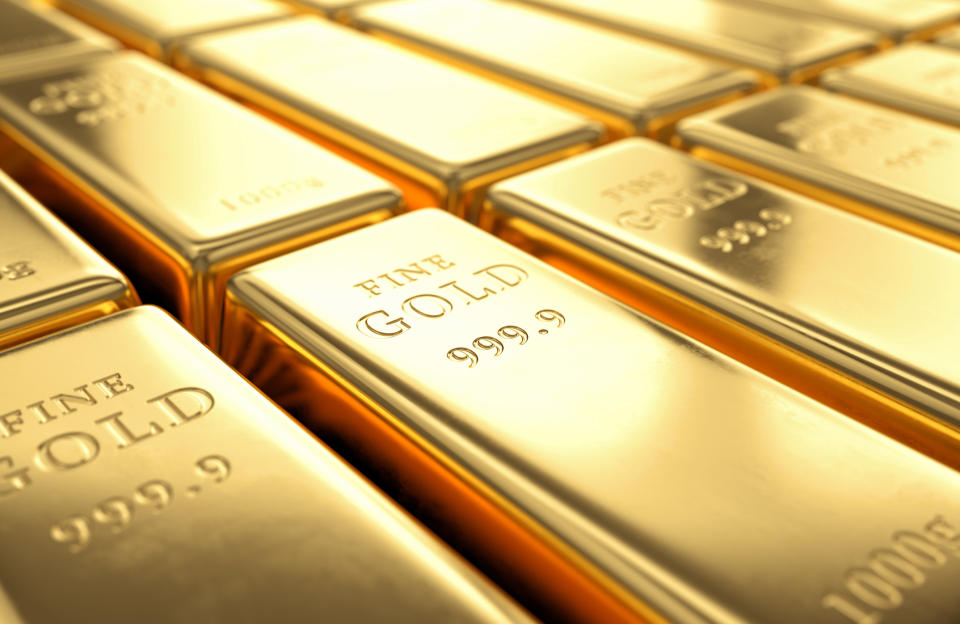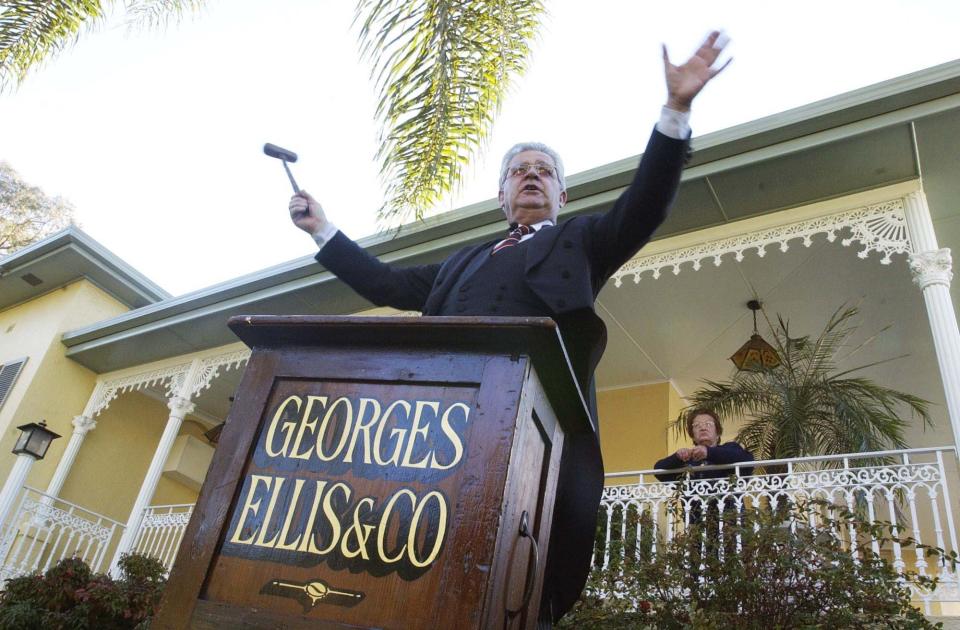5 places to put your money when share markets tank

Australian and international shares have sunk in August after hitting record highs last month. So if you're lucky enough to have money to invest, where do you put it?
The ASX opened 1.66 per cent lower on Monday morning as investors panicked about Donald Trump's continued trade war with China and his constant criticisms of the independent US Federal Reserve.
With bank interest rates at historic lows, neither stocks or term deposits seem particularly palatable for investors at the moment.
So if you have cash to invest, here are some alternatives to research:
Gold (as an investment)
Humans have been fascinated with gold throughout history, and it's no different in current times.
When the economy falters and investors become frightened, gold becomes especially popular as an investment option. Gold prices this year have surged more than 20 per cent as trade fears and low interest rates bite.
Gold is traditionally perceived as lower risk than shares and property. The trade-off is that there is zero regular income (like dividends from shares or rent from property).

“Currency depreciation should lead to more diversification away from risk assets in general into gold or gold-related stocks," Argonaut Securities Asia analyst Helen Lau told Bloomberg.
It's also become easier in recent times to invest in gold. Instead of literally buying gold bullions and keeping them in a safe, investors can buy shares into bullion-backed exchange-traded funds.
Two examples of gold bullion ETFs include the BetaShares Gold Bullion ETF (ASX:QAU) and ETFS Physical Gold ETF (ASX:GOLD).
That type of investment buys you a small stake in a very large cache of gold held somewhere securely by the fund manager.
Inverse ETFs
Exchange traded funds – or ETFs – have become popular in recent years as a way for mum-and-dad investors to put their money into funds that were previously only available to sophisticated customers.
A standard ETF tries to track the average of a particular market or sector. So when that market (e.g. Hang Seng index in Hong Kong) or sector's (e.g. technology sector in the US) fortunes go up, so do the ETF's share prices.
But an inverse ETF's price goes the other way round.
"For example, to get inverse exposure to the NASDAQ100 index you can buy an ProShares Short QQQ (PSQ), which is designed to match the daily returns of the NASDAQ100 Index – just in the opposite direction," Stake operations manager Sarhang Shafiq told Yahoo Finance.
"If the NASDAQ falls by 1 per cent, this ETF should rise by 1 per cent."
Shafiq admits some people might feel uncomfortable with making money when others lose – also known as 'shorting'.
"Shorting as an investment method has some readers shaking their heads as you’re essentially betting on the market going down."
Read more about inverse ETFs here.
Bonds
Bonds are a way to lend money to governments or companies.
In return, the borrower promises the investor it will pay back a certain amount at the end of a specific period – and sometimes even a small income regularly during the term.
Sounds good, right? Government bonds are considered especially low-risk, as they are less likely to default – as in go broke – than a corporate borrower.
Unfortunately, bonds are heavily linked to the central bank's cash rate. While Australia might be experiencing a historic low after the two consecutive months of cuts in June and July, other developed nations have pretty much had rock-bottom rates for years or decades.
In Japan and Germany, rates are in the negatives. This means if you take out a bond, instead of earning money, you will lose a percentage of what you invested.
Take this German government bond, for example. Buy it for 102.64 Euros now, and the issuer guarantees to return you 100 Euros in 10 years' time.
Urgh.
To make things worse, many experts are tipping that the Reserve Bank will cut its rate twice in the next few months, taking Australia close to becoming one of those zero per cent countries.
Incredibly, there are so many nervous investors out there that there are US$17 trillion of negative-yielding bonds now held. That's 30 per cent of all money held in bonds.
Real estate
Australian property has suffered a dip in fortunes over the last 20 months. But there are signs that the market, especially in the big cities of Sydney and Melbourne, may have bottomed out and is ready to rise again.
Sydney, for example, last weekend saw the highest auction clearance rate since April 2017.
The combination of low interest rates expected to go even lower, loosening of loan approval rules and the passing of the federal election have given buyers more confidence since May.
"How fast the rebound is in terms of prices is the big question," said Domain economist Trent Wiltshire.
"I’ve forecast pretty modest price growth for the next six to 12 months, but if clearance rates stay in the high 70s it could potentially be a faster turnaround."
One buyer's agent recently told Yahoo Finance that one particular capital city is currently ripe for making a nice buck.

Stay put
If all the uncertainty worries you, holding on might be the go.
This is despite the RBA cash rate being at a historic-low 1 per cent, and bank deposits not returning much more than zero. For example, the ANZ Online Saver is providing 0.15 per cent per annum on an ongoing basis and the NAB iSaver returns 0.11 per cent.
If the international economy really does fall off a cliff like the current share markets are predicting, then there will be bargains in all types of investments. And you'll need cash to buy those opportunities.
If you already own shares, then many experts advise avoiding panic-selling and look to the long term.
"You have probably heard people talking about buying low and selling high. Sounds pretty straight forward, doesn't it?" founder of Roll-It Super, Mark MacLeod, told Yahoo Finance this month.
"And if you believe what you hear during dinner party conversations, your neighbour or friend is a genius at it."
But in reality no one – not even professional investors – can predict the future. And people, by nature, prefer to just talk about their successes.
"No one likes to admit when they have lost money, so it is easier to never talk about it… The truth is that even professional investors have a difficult time picking the bottom or top of a market."
Make your money work with Yahoo Finance’s daily newsletter. Sign up here and stay on top of the latest money, news and tech news.

 Yahoo Finance
Yahoo Finance 